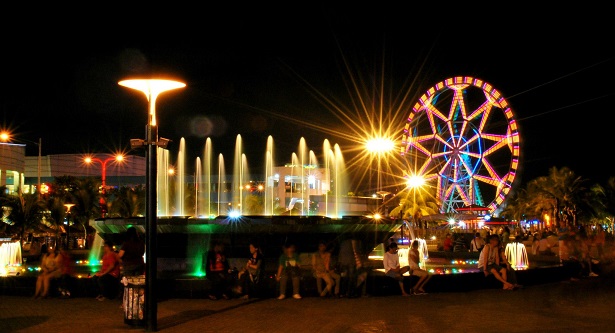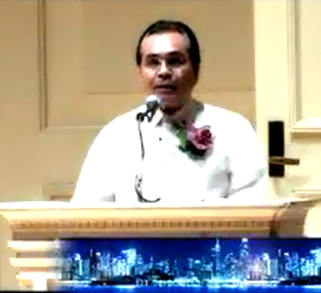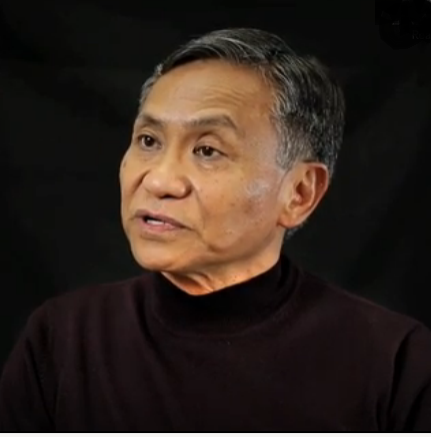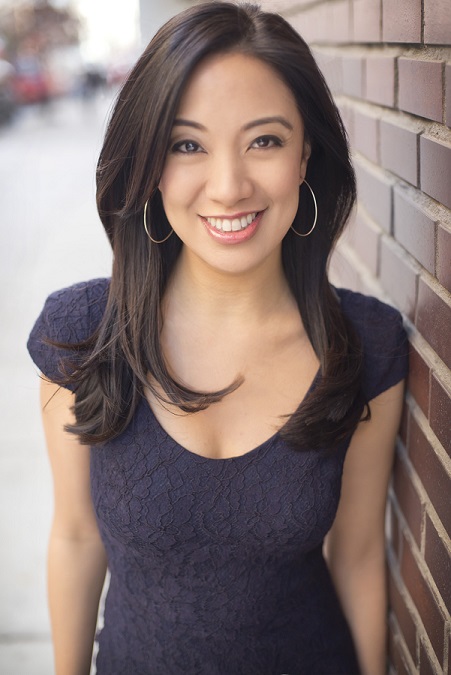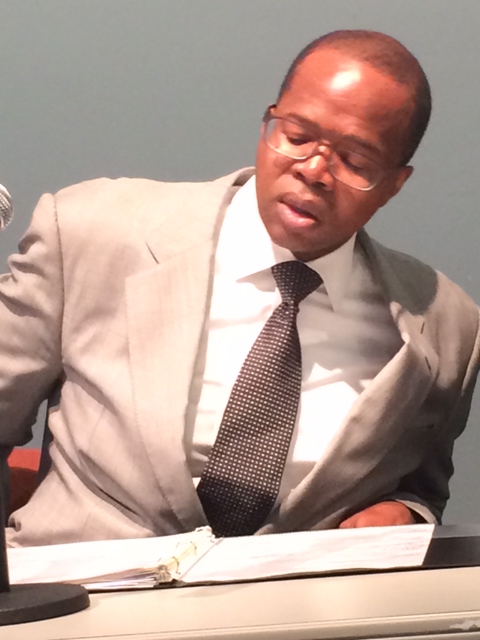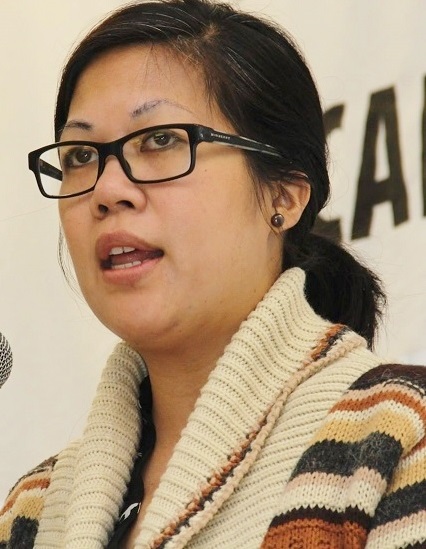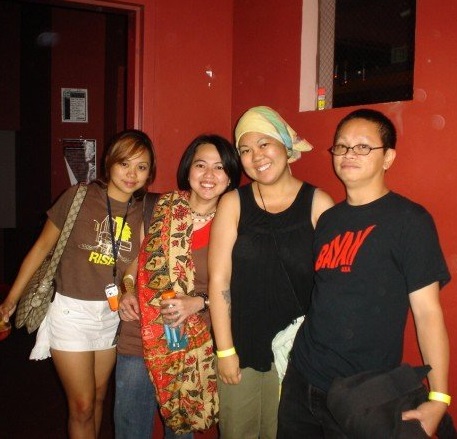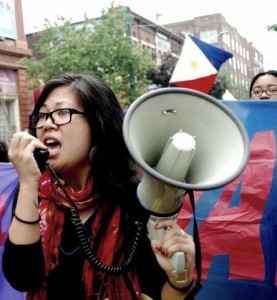How Bernadette Ellorin battled brain cancer with courageous activism
By Cristina DC Pastor
When I first met Bernadette Ellorin, she was wearing a colorful scarf knotted Caribbean-style around her head.
Seeing the admiring look on my eye, she revealed matter-of-factly: “I have cancer.”
That bold declaration has stayed with me for a long time. Years later, I am reconnecting with this remarkable woman, hoping to get to know her better.
She’s been cancer-free for eight years, she tells me. And while she appeared to have recovered and prevailed, there are other battles, less personal but just as intense and painful: the trafficking of Filipino women, the supposed human rights crimes of the Aquino Government, immigration, and imperialism, are just some on her list.
“One of the most important things that kept me alive was my activism,” said Berna, 37, who is currently the chairperson of BAYAN USA.
Berna was born to Filipino parents in the navy town of Bremerton in Washington State. Her father was in the Navy.
Her father was later deployed to San Diego, where Berna and her sister went to school and grew up. She moved to New York after she got accepted into NYU’s film school. While she quickly warmed up to New York as an “exciting” place to be, she did not develop the same fondness for NYU, which she thought then was “too private elitist.”
Still, she went to school, and did freelance work for television production. And then she got sick, diagnosed with Glioma, a type of brain cancer, after finding an aggressive grade 4 brain tumor in the right frontal lobe of her brain.
“I had three brain seizures, two were mild,” she recounted with clarity as if her cancer was discovered only yesterday. “The third one was major.”
She was rushed to a hospital in Brooklyn where the doctors removed a tumor the size of a quail egg. It was caught just in time before the tumor got worse and caused greater damage to her health. Chemotherapy and radiation therapy kept the cancer in check and prevented it from growing back.
“I lost all my hair, gained a lot of weight from my anti-seizure meds because they were steroids. I looked like a Big Buddha,” said Berna. Her mother came to New York to take care of her.
Through it all, Berna did not stop the militant activism that has been her life from the time she started reading “The Autobiography of Malcolm X” in high school and became exposed to the plight of Filipino domestic workers in New York City while in college.
Berna was at the height of her battle with cancer at the same time that she was advocating for the Sentosa 27 nurses, who filed a lawsuit against a nursing facility and a recruitment agency over contract issues.
“I got sick in the middle of that campaign. While undergoing treatment, I remained involved and I would go to the Long Island facilities (where the nurses were recruited to work) and I would stand at pickets and rallies.”
In another incident, Berna attended a Philippine Consulate reception for a high-ranking Filipino defense official. She took to the microphone to protest the “inequality” in bilateral relations between the U.S. and Manila.
“Mr. Secretary, I have a bone to pick with you,” she began. As if choreographed, all heads turned around to look at the sassy speaker. It was Berna with a colored ‘tubaw’ wrapped around her head.
The campaign for domestic worker Elma Manliquez was another intense advocacy for Berna, although she was not ill at the time. Elma, a domestic worker, accused her former employers of treating her like a “slave” for two years. She was held captive in a basement and was not allowed to go anywhere. She eventually won the case.
“I met her and learned about the horrific conditions she went through. That’s how I got politicized,” she said.
This was in 2002. Berna was then affiliated with the grassroots organization Philippine Forum.
She is one of the founders of BAYAN USA in 2005. She suffered a near-fatal brain seizure and emergency brain surgery on June 24, 2007. BAYAN USA today has 18 member organizations across the U.S. including New York, Chicago, San Francisco, and Los Angeles.
Militant groups, like BAYAN USA, have been known to make a lot of noise and to be pugnacious, but Berna believes there is a reason for adopting the tactics that they use.
“In our experience, the Philippine government, or their consulates and embassies abroad, do not move meaningfully on cases of human trafficking and other indignities experienced by our ‘kababayan.’ They never act on their responsibility without pressure coming from organizations making a lot of noise,” she explained.
She is pleased to note that there are a lot of “well-intentioned” organizations serving the Filipino community in the New York metropolitan area.
“Typhoon Haiyan brought all of them out,” she said. “There’s a whole range of organizations across all (political) spectrum and they’re all doing their best to help the Philippines.”




